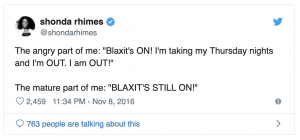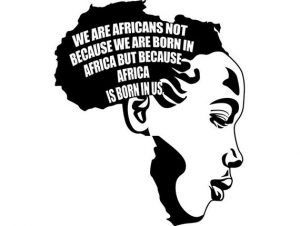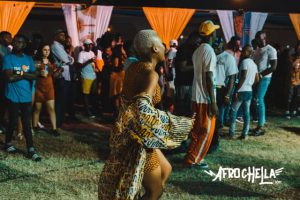Then conquer we must when our cause it is just/And this be our motto: “In God is our Trust.”/And the Star-Spangled Banner in triumph shall wave/O’er the land of the free and the home of the brave.”
As per the nation’s national anthem, the United States is lauded as the “land of the free and the home of the brave;” a country filled with hope and opportunity for all. However, in its living reality the United States still stands as a land of discrimination and segregation against people of color, particularly those of African descent. On the hand of segregation, it comes as no surprise that, as per the 2010 census, the average African American in a metropolitan area lived in a neighborhood that was 35 percent white—the same figure as in the 1950 Census—whereas the average white American still lived in a neighborhood that was more than 75 percent white. This pattern of residential segregations results not from private choices or from mere economics, but instead from a long history of pervasive, intentionally discriminatory government actions, such as the enforcement of Black Belt regions, that have continued well past the Fair Housing Act. Further, in focusing on the perpetuation of discrimination and mistreatment of African bodies, it is crucial to note that, on the extreme end of the spectrum, Black men aged 15-34 are between nine and sixteen times more likely to be killed by police than other people, while on the other hand of the spectrum, Black females are still discriminated against in work settings for the seemingly ‘unprofessional’ texture and look of their natural hair.
Thus, in observing the culture of the United States and the mistreatment of Blacks, it comes as no surprise that like Martin Delany and Caribbean migrants in the interwar years, many people of color today face the question of whether to stay or leave the United States. While I support the choices made by every individual, and deeply understand the desire to go and find a ‘home,’ I would argue against a contemporary emigration scheme to Africa for those of African descent.
In inspecting the history of Black (e)migration, a key figure to keep in mind is Martin Delany, the father of Black nationalism. During his time Delany fought for the migration of the highest forms of Blacks back to Africa. From his point of view these individuals, the morally exempt and highly intelligent, could bring up the standing of Africa and populate it with the highest forms of human kind. However, those that supported his logic failed to notice its many downfalls. First and foremost, in including only the highest elites, Delany failed to create a version of Pan-Africanism that welcomes and includes all. Much like the rest of the American government at the time, Delany’s plans still left behind those who most desperately needed the help and the opportunity to find a place they could call home. Further, in assuming that American Black elites could populate Africa, and make it a land worthy of its new inhabitants, Delany failed to consider the wishes and perspectives of the individuals who already populated the African countries he hoped to better.
As we fast forward to the present and the future, any (e)migration scheme would make the same mistakes that Delany’s vision would have encountered. While those of African descent should choose what is best for them, be it migrating to Africa or staying put, a large migration scheme that does not address the racial and socioeconomic inequalities existent within the current population, and or the wishes and perspectives of those living in the mother land fails to fully understand the larger picture. Thus, instead of migrating away from the United States, I advocate for Blacks to remain within this country and continue making an impact and changing the country to fit their needs. Most importantly, since they do not have the long standing power and respect given to Whites, the biggest change must come from allies within the United States who are willing to stand up for people of color and speak up when their own and those who they barely know are discriminating or segregating individuals whose home is, and will always be, the United States of America.


 f the fact that he was considered, by some, to be the father of black nationalism. Black nationalism and the idea of a color consciousness were the central foundations upon which many of the emigration movements were built. Thus, to people like Delany, African regeneration was only possible through the creation of a homogeneous and self-sufficient nation of morally exemplary (or Christian) and intelligent black people. This was problematic because of two reasons: one, the rhetoric of an African regeneration implies that the Africans weren’t self-sufficient in the first place and two, just as when the emigration debates were occurring in the late 1800s, black nationalism and a diasporic consciousness cannot be easily defined today. As Tiffany Ruby Patterson and Robin D.G. Kelley write in their work, “Unfinished Migrations: Reflections on the African Diaspora and the Making of the Modern World,” diaspora doesn’t just exist and is continuously reconstituted and recreated. In that sense, for many people of African descent, it appears to be a personal journey in which they develop or reject pan-Africanism or a black consciousness either on the realization that black people share the same timeless cultural values or that these values have manifested over time from life under racism and imperialism. Thus, any back to Africa movement would be in danger of suffering the two fates Delany fell into: either assuming the superiority of black Americans (or the inferiority of Africans) or simply failing to properly define and muster enough support for a black consciousness.
f the fact that he was considered, by some, to be the father of black nationalism. Black nationalism and the idea of a color consciousness were the central foundations upon which many of the emigration movements were built. Thus, to people like Delany, African regeneration was only possible through the creation of a homogeneous and self-sufficient nation of morally exemplary (or Christian) and intelligent black people. This was problematic because of two reasons: one, the rhetoric of an African regeneration implies that the Africans weren’t self-sufficient in the first place and two, just as when the emigration debates were occurring in the late 1800s, black nationalism and a diasporic consciousness cannot be easily defined today. As Tiffany Ruby Patterson and Robin D.G. Kelley write in their work, “Unfinished Migrations: Reflections on the African Diaspora and the Making of the Modern World,” diaspora doesn’t just exist and is continuously reconstituted and recreated. In that sense, for many people of African descent, it appears to be a personal journey in which they develop or reject pan-Africanism or a black consciousness either on the realization that black people share the same timeless cultural values or that these values have manifested over time from life under racism and imperialism. Thus, any back to Africa movement would be in danger of suffering the two fates Delany fell into: either assuming the superiority of black Americans (or the inferiority of Africans) or simply failing to properly define and muster enough support for a black consciousness.
 millions of dollars of revenue from hosting these black diasporic events. The President of Ghana, Nana Akufo-Addo, declared 2019 as the “Year of Return,” which of course highlights his intentions to capitalize on this urge to develop and sustain a nation free of racism and outside the systems that uphold white supremacy.
millions of dollars of revenue from hosting these black diasporic events. The President of Ghana, Nana Akufo-Addo, declared 2019 as the “Year of Return,” which of course highlights his intentions to capitalize on this urge to develop and sustain a nation free of racism and outside the systems that uphold white supremacy.